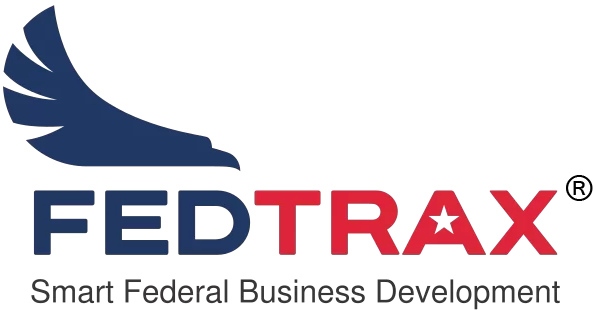
Government Contracts Don’t Grow on Trees
So what’s your success path to government contracts
Momma always told me, “If someone else can claim it, it ain’t a competitive advantage.” Take that as Rule #1 in marketing to anybody, whether B2C, B2B, or B2G. OK, maybe it wasn’t my sainted mother that memorialized that piece of wisdom. It may have been a Vistage speaker I saw years ago that specialized in defining unique value. The important thing is that it stuck with me.
This article is about stuff that won’t win you Federal business. Take a close look at that title. It doesn’t mean you can ignore them or not have them at all. There are many things you are marketing that may get you on the dance floor of minimally qualified bidders on a contract opportunity, they just won’t win it for you. Now there are exceptions to every general rule, so the factors I’ll go through here may ignite some controversy. If you think I’m full of it, feel free to express yourself and ignore the content of this piece.
So here is the list some contractors think is super important that buyers tend to yawn in response to:
Your Philosophy
“We strive to be a trusted partner to every agency, person and all other organic matter we work with.” Terrific! That’s exactly what your customers need. Unfortunately, they won’t pay for it and it won’t win you any government contracts. Re-read Rule #1. Frankly, saying this or promoting it might even be hurting you because of how cliché it (or just about any other philosophy) has become. If you’re going to tout your corporate philosophy because you feel it’s important, just make sure you’ve read about 100 other websites to see that your statement really is different and connotes extraordinary value and game-changing ambition. Putting a computer on every desk and in every home doesn’t sound like much now, but when Gates and Allen said it, it was nuts enough to make Microsoft stand apart.
Your People
I bet your company has exceptional people. I wasn’t quite sure, but then I read the website, and it sealed it for me. You do. In fact, they’re your most valuable assets.
Question: Do you think your competition is out there promoting, “Well, our people aren’t so hot, but we are the lowest price available!” Stop here if they are, because this section doesn’t apply to you. In rare cases, competitive advantage can be a person, but only one that is so well regarded through industry reputation that your organizational excellence becomes known through association, like the world-famous neurosurgeon Ben Carson representing your brain clinic. Most businesses cannot claim this because they don’t have it.
“Wait just a minute, dude,” you say, “we’re a butts in seats business and we submit resumes!” As do other bidders. A necessary evil when dealing with government contracts, but their resumes can look pretty good when spit-shined too. Also note that this article is about what you market, not what you put in your RFP response when you have 50 pages to do it.
Instead, market the uniqueness of your technology using patents and performance against industry standards (that you get from credible, recognizable sources) in the same categories as proof sources that your company really is worthy of being taken seriously.
Your Quality
Quality is only a competitive differentiator when someone else attests to it. That means 3rd party certifications from trusted organizations. In the Federal marketplace, the standards that start to look interesting are CMMI III (or higher, up to V) or ISO 9000 and whatever. These tend to be minimum barriers to entry, however, meaning if you don’t have them, don’t go down the quality path when defining yourself. Even so, the 1980s called, and they want their slogan back. Your customers, and especially the risk averse Federal Government, have come to expect a baseline level of quality (see the standards above) and yet, unsurprisingly, they’re usually not willing to pony up for the highest levels, even when substantiated with your 3rd party proof sources. In most cases, the Contract Officer is buying a nice, solid Ford, even when you’re selling a Ferrari. Anyone that’s ever lost a Best Value determination and done a post mortem has felt the sting of this non-determining factor.
More bankable is your Past Performance rating as reflected in the Contractor Performance Assessment Reporting System (CPARS) and Past Performance Information Retrieval System (PPIRS) metric tools. If your firm has been a prime contractor on Government contracts in the past, you have these ratings. If you have not primed and worked only as a subcontractor, you’ll likely have to fill in a form that basically references the prime contractor and the agency you did work for, with contact information, that serves as a reference. This makes checking you out more difficult, and as such, is an immediate disadvantage for small businesses and others that lack prime contracts.
Your Check Box
Otherwise known as socio-economic category. Women or minority owned, SDVOSB, 8A, Hubzone—you know the requests. I know, this one is a lightning rod for dissenters. Read on. Your check box is a classic ticket to the prom that won’t get you crowned king or queen. I’m speaking here about companies that not only have this, but have become so accustomed to it that they lead with it as opposed to a truly unique value proposition (UVP) that is more memorable and deserving of loyalty.
This is not to diminish the significance of targeting Federal Government set asides that your organization qualifies for. This can limit the competition to a large extent, but understand that everyone else bidding against you has these if the RFP requested them. If it didn’t, your trying to move the buyer into a space that she didn’t indicate was important. Maybe, but changing someone else’s behavior isn’t an easy thing.
Your company philosophy, people, quality and socio-economic designation are all things that you may need to have to play the game. They just won’t make you special.
